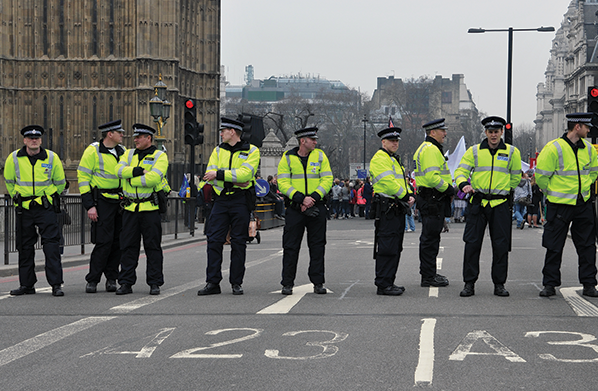A London Telegraph profile of Khalid Masood, the terrorist who went on a rampage, leaving four dead and others with catastrophic wounds, in London, near Parliament, attempts to trace Masood's trajectory from "fun-loving teenager to London attacker."
The profile contains this gem (my bolding):
It was after school that Masood's life appeared to go off the rails, with him getting involved in petty and violent crime.
At 19 he received his first conviction for criminal damage. He went on to receive a string of convictions over the next 20-years.
Masood, may have eventually snapped because of racism in his village leading him to slash the face of a cafe owner.
Excuses. Excuses. And more excuses:
It is thought he may have then been radicalised while in jail, eventually leading to his involvement in terrorism.
And this:
Masood was 35 and living in the quiet Sussex village of Northiam when in 2000 he slashed cafe owner Piers Mott in the face with a knife after a row that had ‘racial overtones’.
Hove Crown Court heard that the attack left Masood and his young family "ostracised" in the village. He had been in conflict with his victim before. After leaving the pub, in which he argued with his victim, Masood lost his temper and slashed seat covers in Mott's car.
Fancy that. Prejudiced villagers steer clear of a "young family" just because the Dad has slashed a man in his face?
Ah, and some further details:
Masood went off the rails in July 2000, slashing a man across the face after an argument that had "racial overtones". The attack would land him in jail and his life, already in a fragmented state, would fall apart. In another attack three years later, he stabbed a man in the nose before reportedly travelling to Saudi Arabia.
Do you get the impression that Masood liked to knife people in the face? What does it mean that Masood's life was "in a fragmented state?"
The reporters immediately go on to note:
The extraordinary revelations will cause deep unease. Elms – or Masood, the Islamic name he adopted – was known to the authorities as a vicious thug whose ‘violent extremism’ had brought him to the attention of MI5. Yet at some point a decision was taken that he was no longer considered a threat.
The Telegraph reporters who wrote this profile, Robert Mendick and Martin Evans, faced a formidable task. It is difficult for reporters to get enough information to write a profile of somebody formerly obscure who is suddenly world famous.
Evans and Mendick got some great details, but all in all the profile didn't tell us what we really wanted to know (I'd rather have known more on Masood's conversion to radical Islam and less on his career as a "smiling footballer") and there is throughout the story an attempt to somehow lessen Masood's culpability for his pre-attack knifings: racism made him do it.
The profile does recount that Masood attended a mosque where Anjem Choudary, a radical cleric now behind bars, preached. But it doesn't tell us about his conversion. There is some traveling back and forth to Saudi Arabia. This might be a fruitful topic for exploration by reporters.
The thing the profile does lay bare is that there is a vast world in England in which law and order simply don't exist–and when people in these environs take precautions to make their families safer, such as by avoiding the Masood family in the wake of a stabbing, racial overtones are projected.


